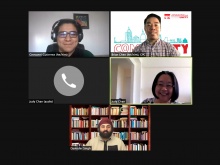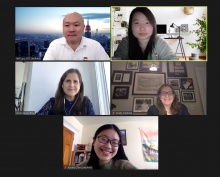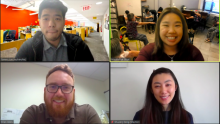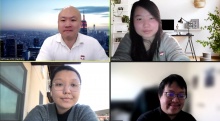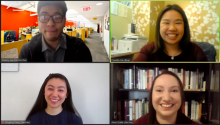CPC Staff and Community Members Meet with NYC Council Members for 4th Annual City Advocacy Day

On April 14th, CPC held its 4th Annual City Advocacy Day, meeting with 20 City Council Members and their staff. CPC staff and community members discussed how CPC has been supporting our communities during COVID-19, why it is critical that we fund our programs and human services staff, the increase in AAPI hate, and how we need to invest in AAPI's long term healing and recovery. The day concluded with a press conference with six legislators speaking.
Council Members we met with include: Council Member Adrienne Adams, Council Member Alicka Ampry-Samuel, Council Member Justin Brannan, Council Member Daniel Dromm, Council Member James Gennaro, Council Member Mark Gjonaj, Council Member Barry Grodenchik, Council Member Robert Holden, Council Member Peter Koo, Council Member Brad Lander, Council Member Mark Levine, Council Member Carlos Menchaca, Council Member Helen Rosenthal, Council Member Rafael Salamanca, Council Member Mark Treyger, and Council Member Eric Ulrich. Thank you to the Council Members and staff that met with CPC to discuss our community needs.
The press conference was held on Facebook Live and has received more than 1,000 views. Watch the full press conference, including CPC staff and community member speakers, on Facebook here.
The following priorities were shared with Council Members and their staff:
Provide relief for essential human services staff
New York City’s 40,000 contracted human services workers have been essential workers throughout this
crisis, providing critical services on the frontline as well as remotely. We join the Human Services Council
and other providers in urging the City to:
- Invest $171 Million to Fully Restore Indirect Cost Rate (ICR) Funding for FY20, FY21, and FY22 to correct the destabilizing retroactive cuts to the sector.
- Commit to paying frontline human services workers incentive/hazard pay retroactive to March 23, 2020, when non-essential workers in New York were ordered to stay home.
- Recognize the lifesaving work of the human services workforce and commit $48 million in FY22 to a 3% multi-year Cost of Living Adjustment (COLA) in order to begin to chip away at the poverty wages the City pays the majority of the workforce.
CPC is a member of the Human Services Council and endorses their platform.
Maintain social services and safety net programs
Our organization and programs have always been critical in supporting vulnerable and hard-to-reach
communities, but during the COVID-19 response and recovery, CPC is key to ensuring that communities
of color, immigrants, and low-income New Yorkers are not further isolated or marginalized. We urge the
City to:
- Maintain funding levels from FY20 and allow providers the flexibility to modify services for COVID-19 safety. Cutting services will only delay economic recovery and further institutionalize the racial and economic segregation our communities face.
- Prioritize funding for support services and programs that keep communities whole, rather than funding the continued over-policing of communities of color and immigrants during this crisis.
- Restore funding to critical programs, including summer programs such as SYEP, SONYC, BEACON and COMPASS, senior services, and all Council Initiatives (such as Access Health NYC, Adult Literacy Program, Geriatric Mental Health Initiative, and legal services initiatives).
CPC is a member of United Neighborhood Houses, Live On New York, Coalition of Asian American Children and Families, and FPWA and endorses their platforms.
Support Limited English Proficient communities and Asian Americans facing discrimination
During COVID-19, many community members are unable to receive the resources and services they need
because of the lack of translated materials and interpreters. At the same time, the increase in anti-Asian discrimination is causing deep harm in Asian American communities, approximately half of whom
are limited English proficient. We urge the City to:
- Invest in community-based organizations that bridge the language divide to provide essential services, information and access to City resources. These organization must be kept whole in order to reach communities living in linguistic isolation.
- Ensure equitable vaccine access by investing in community-based organizations to do outreach and navigation, and ensuring translation of all materials and in-person interpretation at all
- vaccine sites.
- Continue to address anti-Asian discrimination by investing in Asian American led organizations that have deep roots and track records in the most impacted communities.


